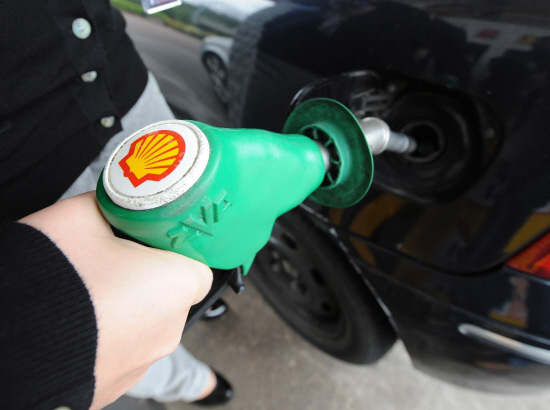Business organisations in Fife and Tayside have called on Chancellor Alistair Darling to use next week’s budget to drop his pledge to increase the government’s take from fuel by an estimated 2.5 pence per litre from April 1.
Tayside road haulier Donald Ridgway, of PS Ridgway in Wester Gourdie, said the step would help transporters, industry and consumers tackle the downturn by avoiding an increase in freight costs.
“I think it’s absolutely outrageous that they are talking about increasing duty again,” Mr Ridgway said.
“The haulage industry are having to bear the brunt of this during an economic downturn — and it certainly does not help the manufacturing industry either.
“Because we carry their products, we’re able to judge what is coming out of the factories and this massive downturn has not helped things.
“I think it would be a big help if they were prepared to drop this year on year.”
According to the Road Haulage Association, the rise could cost some firms up to an extra £1100 a year for each lorry on the road.
The burden of duty and tax has already risen three times in a single year, after increases of 1.84 pence a litre in April 2009, 2p a litre in September, and a further increase when VAT returned to 17.5% at the turn of this year.
Over the last year the price of fuel has risen by over a quarter — and is nearing a record high.
According to the RAC, the price of petrol is now 115p, up from 90.7p a litre a year ago.
A fuel duty increase of inflation plus 1p was announced for April 2010 in last year’s Westminster budget.
Phil Flanders, Scotland and Northern Ireland director of the Road Hauliers’ Association, has warned that rising fuel prices could push a number of small hauliers to the wall over the next 12 months.
Allan Russell, chief executive of Fife Chamber of Commerce, believes that any increase in fuel prices can only hinder firms at a time where their operating environment should be receiving assistance.
He said, “This is unprecedented.
“When you compare the price of sterling against the dollar– and oil is traded in dollars– the price is even higher than before. All of the political parties have agreed that it is business that will drive the economic recovery but if they keep penalising businesses then how do they expect this to happen?
“We know there are unbelievable levels of debt and to get us out of it there will need to be an increase in taxes and cuts in expenditure.
“But the government can use a budget to either stimulate business or raise taxes and if they choose the taxes option you have to ask whether the government is serious about supporting business.”
Mr Russell’s concerns have been echoed by Janet Torley, chair of Fife FSB.
Independent traders have been hit considerably hard throughout the recession with many thought to have closed due to financial constraints.
Mrs Torley said, “This creeping rise in petrol prices is hurting everyone. In fact, a good friend of mine who runs a small firm has said that he is close to giving up because of the situation.
“These prices are crippling small firms and it’s reached the stage where a tank that may have cost £60 to fill last year is now costing £70 and those costs have to be passed on to the consumer.
“We already pay the highest duty on fuel in Europe so I question why it has to go up again. Is it just profiteering?”
Dundee commuters were also angry. Domique Rowands, who was buying petrol from Asda Milton of Craigie petrol station, said, “I think it’s shocking and really crippling for motorists. I have kids to get to school and travel six miles every day to get them there.
“I’ve also got university to get to. I used to spend £10 a week on fuel and now it’s more like £20 to £25.”
Alban Houghton said, “It’s absolutely inevitable that prices will rise as we’re approaching a carbon crisis.
“The prices will continue to get higher and higher.”
Prices averaged 112.9 for supermarkets and 113.9 for independent petrol stations in Dundee.
Linda McRae, supervisor at Forfar Road Service Station, which had prices at 113.9 for petrol and diesel, said that despite their slightly higher prices compared with supermarkets they still retained a steady flow of customers.
“We always have a loyal customer base.”
